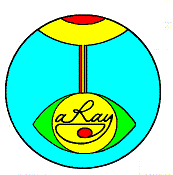Application of Reverse Agglutination for
Identification Diseases such as Coronavirus COVID-19 .
The Medicheck system utilises a variable orifice that uses an
impedance technique to measure, size and count particles varying in size from
1um to 30 um.
The sample (e.g. blood, urine, sputum) is pippeted into a well of a
tray and placed on a conveyer. The agglutinant / antibody antigen is added to
the sample. After sufficient time for agglutination / clumping to take place has
elapsed, the well is moved and presented to a probe for analysis. A saline
solution is used to dilute the sample. The probe sucks some of the sample
through the orifice. The impedance across the orifice changes when particles
pass through the orifice, in proportion to the size of the particle. The number
of particles are counted and sizes are measured and stored in a histogram of
size (x axis) versus against count of number of particles. The histogram is
analysed to determine particles per litre of different sized particles.
Absolute numbers are counted and are then classified for significance.
The user can set the threshold values for calibration, and indicating significance since not all
laboratories use the same criteria for determining a ‘positive’ sample.
Ordinarily large particles will block the orifice. However the Medicheck
probe filters out large particles and is less susceptible to blocking (if
blockage is detected and unblocking routing is run to automatically remove the
blockage)..
Because large particles are filtered out, a comparison of sample particle
sizes and counts with and without agglutination can determine the presence or
absence of a disease. When disease is absent no clumping / agglutination takes
place so sample histogram will not change. When disease is present clumping
takes place so counts of particles of various sizes will change. Additionally,
due to filtering effect, large clumps will be filtered out and not counted or
counted in sized multiples.
A trial for rheumatoid arthritis (R A) in serum, where only 10% of the
normal agglutinant per sample was used, reported a Sensitivity of 99.7% Specificity of 90.88%
This system can be used for hundreds of antibody antigen
agglutinations or lateral flow technology tests that utilise particles sized between 1um and
30 um.
Diseases include Coronavirus COVID-19
antibody test.
List of some of the
Agglutination tests available
Rheumatoid Factors (R.A.).
Hepatitis B (RPHA)
Weil-Felix
Cytomegalovirus (CMV)
C-Reactive Protein (CRP)
E.coli 0157
E.coli K1
E.coliSP3112
ASL
Syphilis (SPHA)
HIV 1 / 2
Rickettsia
Candida Mannan
Summary
Samples
- Urine
- Sputum
- Blood
- Serum
Particle sizing and counting of particles 1um to 30 um
Filtering – Large particles filtered out, they do not enter probe. (Reverse
agglutination)
Re-agent amount Less than 10% of amount used by
normal visual tests.
Speed of test About 2 minutes,
depends on time antigen-anti body takes to bind.
Automation
- multiple samples on conveyor
- results transmitted to laboratory computer
- barcode positive sample Identification
- Multiple tests possible with multiple antibody antigens.
Performance
- Sensitivity of 99.7%
- Specificity of 90.88%
The Medicheck system is no longer in production.
However if you are interested in developing a new version (laboratory or
doctors office) contact us at
Tel: +44 7903 967 355 Email:
kmuk1@btinternet.com
